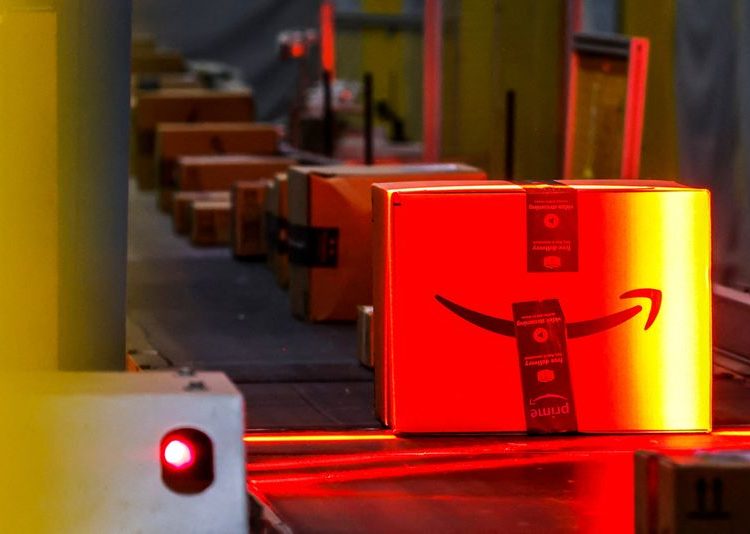The bipartisan push to eliminate taxes on tips has been touted as a way to help people keep more of their hard-earned money. But some economists warn that it could encourage employers to reduce hourly wages.
A version of the proposal, one of President Donald Trump’s campaign promises, was passed by the Senate last week and another was included in a wide-ranging tax and immigration measure recently approved by the House. The Senate bill “would mean immediate financial relief for countless hardworking families,” Sen. Jacky Rosen (D-Nevada) said while introducing the measure.
But some advocates for restaurant workers and labor law experts call it a gimmick that could push employers to reclassify some salaries as tips and lock in a controversial practice that allows them to pay tipped workers as little as $2.13 an hour.
“It’s really a shame that Congress is trying to further cement this system by preferencing tips in the tax code,” said David Cooper, director of state policy and research at the left-leaning Economic Policy Institute.
When part of compensation is tax-free, employers tend to use it more, said David Neumark, an economics professor at the University of California at Irvine. “Why do we all get health insurance through our jobs? In part because it’s tax-free,” he said.
Under the Senate proposal, employees earning $160,000 or less in 2025 would get a tax break on up to $25,000 a year in tips. The House measure would extend the tax break to independent contractors, which could include ride-share and delivery drivers, and end after 2028, among other differences.
About 4 million U.S. workers were in predominantly tipped occupations in 2023, according to the Yale Budget Lab.
Nevada has the largest concentration of tipped workers among U.S. states; Trump pitched the idea of a tax break on tips at a 2024 campaign rally in Las Vegas.
Groups representing restaurants and hotels back the policy. A 2022 National Restaurant Association survey found that full-service restaurant waiters earned a median of $20 in tips and $7 in wages per hour.
Ted Pappageorge, secretary-treasurer of the Las Vegas chapter of the Culinary Workers Union, which represents about 60,000 workers, said he fully supports the proposal and dismissed the idea that employers might shift compensation away from wages to tips. “It’s nonsense,” he said, citing restaurant workers’ $2.13 minimum wage. “We’re already dealing with that now.”
Other restaurant workers and labor advocates say the proposal doesn’t help back-of-house employees who don’t get tips – or the estimated more than one-third of tipped workers who have no federal income tax liability because of low pay.
“Ending taxes on tips only puts a Band-Aid on the situation,” said Elyanna Calle, a server and bartender in Texas who is president of the smaller Restaurant Workers United union. “It doesn’t address the core problem of poverty wages throughout the service industry.”
Rosen, the U.S. senator from Nevada, pushed for the no-tax-on-tips policy to “provide immediate relief,” but she will “keep fighting to increase the minimum wage and get rid of the sub-minimum wage for workers in the service industry,” said Joe Bush, a spokesperson for her office.
The White House and Sen. Ted Cruz (R-Texas), who co-sponsored the no-tax-on-tips bill, did not respond to requests for comment.
Restaurant workers who make more than $30 a month in tips can be paid a reduced minimum wage under federal law – $2.13 an hour, compared with $7.25 for non-tipped employees. These reduced minimum wages vary across the country, ranging from less than $3 in more than 20 states, to $16 or higher in California and Washington. If tipped employees don’t reach the full minimum wage – paid to non-tipped employees – through their tips, the employer makes up the difference.
The payment structure has long garnered criticism among labor advocates who say it leaves worker pay subject to customer whims and disruptions like bad weather. Restaurant business and tips could decrease during a slow tourism season, for example, said Elizabeth Ananat, an economics professor at Barnard College.
“The fact that you would have gotten a tax break if you had had good tips isn’t going to get you very far,” she said.
Some critics say the no-tax-on-tips policy could exacerbate pressure on consumers to leave tips at a time when many are fatigued by tip requests at counter-service establishments and from gig workers.
The policy could also prompt more industries to argue their employees qualify for the reduced minimum wage, under the cover of granting them tax-free tips, those critics say. If the measure passes, the treasury secretary will draw up rules on what occupations qualify.
Occupations like hotel cleaning staff are in a “gray area,” said Cooper, with the Economic Policy Institute: “Are they going to start being treated as customarily tipped employees as it relates to this tax preference?”
Such workers might like getting a tax break, he said. “But that might also create more opportunity for employers to start lowering their base pay, maybe even subjecting some of them to the lower tipped minimum wage.”
Ralph Posner, a spokesperson for the American Hotel and Lodging Association, said exempting tips from taxes could help recruit and retain workers to a sector that is facing a worker shortage.
“To ensure that our industry remains attractive to employees, hotels continue to pay competitive wages,” he said.
It’s not clear how much in tips goes unreported to the IRS each year.
Cash tips were often not reported to the federal government in the past, said Robert Cherry, an emeritus economics professor at Brooklyn College. That has changed as credit cards have become the default payment method, potentially reducing the take-home pay of some waitstaff who had to start declaring their tip earnings, he said.
“I think this [no-tax-on-tips bill] rectifies a change that’s really affecting working-class people,” Cherry said.
Restaurant owners and servers in Washington state interviewed by researchers five to 10 years ago regularly said that tips were cashed out at the end of the night and not reported to the federal government, said Jacob Vigdor, a University of Washington professor who has extensively studied Seattle’s minimum-wage law.
Depending on how much in tips is underreported, shifting to a no-tax-on-tips policy “actually might change very little in the real world,” he said. “It’s just basically modifying the tax code to fit reality.”
Related Content
Despite ceasefire, India and Pakistan are locked in a cultural cold war
The D.C. plane crash took her mom and sister. She turned to her piano.
Johnson again corrals GOP factions to pass Trump’s sweeping tax bill
The post Exempting tips from taxes could hurt employees, critics say appeared first on Washington Post.




